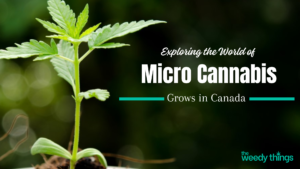Understanding THCA and THC:
THCA and THC are both cannabinoids found in cannabis plants, but they differ in their chemical structures and effects. THCA is the precursor to THC and is typically found in raw, unheated cannabis plants. When exposed to heat through a process called decarboxylation, THCA converts into THC, the compound responsible for the psychoactive effects commonly associated with cannabis.
On the other hand, THC is the primary psychoactive compound in cannabis responsible for the euphoric effects commonly experienced when using cannabis products. It interacts with the body’s endocannabinoid system, primarily binding to cannabinoid receptors in the brain and central nervous system to produce its effects.
Understanding the Differences:
One of the main differences between THCA and THC is their psychoactive effects. While THC produces intoxicating effects, THCA does not. This is because THCA must be decarboxylated (heated) to convert into THC before it can produce psychoactive effects. As a result, raw cannabis or hemp products containing THCA are unlikely to cause intoxication.
Another difference is their potential therapeutic benefits. While THC is known for its psychoactive effects, it also has potential medical uses, including pain relief, appetite stimulation, and nausea reduction. However, THCA is believed to have its own therapeutic properties, including anti-inflammatory, anti-nausea, and neuroprotective effects, without causing intoxication.
THCA and THC Levels:
When it comes to CBD oil in Thailand or hemp oil Thailand, consumers should pay attention to the THC and THCA levels to ensure compliance with local regulations. In Thailand, cannabis laws are strict, and products containing THC above certain thresholds are prohibited. Therefore, consumers seeking the best CBD oil in Thailand or CBD oil in Chiang Mai should choose products with minimal THC content to comply with local laws.
Potential Benefits of THCA and THC:
Both THCA and THC have potential therapeutic benefits, although they differ in their effects and mechanisms of action. THC is commonly used for its psychoactive effects and potential medical uses, including pain relief, appetite stimulation, and nausea reduction. However, its intoxicating effects may not be suitable for everyone, particularly those sensitive to THC or subject to drug testing.
Frequently Asked Questions
THCA (tetrahydrocannabinolic acid) is the non-psychoactive precursor to THC (tetrahydrocannabinol), which is the psychoactive compound in cannabis.
THCA is found in raw cannabis and does not produce intoxicating effects. THC, on the other hand, is created when THCA is decarboxylated through heat, resulting in psychoactive effects when consumed.
Some research suggests that THCA may have potential anti-inflammatory, neuroprotective, and antiemetic properties, although more studies are needed to fully understand its therapeutic effects.
THCA is commonly consumed by juicing raw cannabis or using tinctures, capsules, or edibles made from unheated cannabis. THC is typically consumed by smoking, vaping, or ingesting heated cannabis products.
Yes, THCA undergoes decarboxylation when exposed to heat, such as through smoking, vaping, or cooking, converting it into THC.




